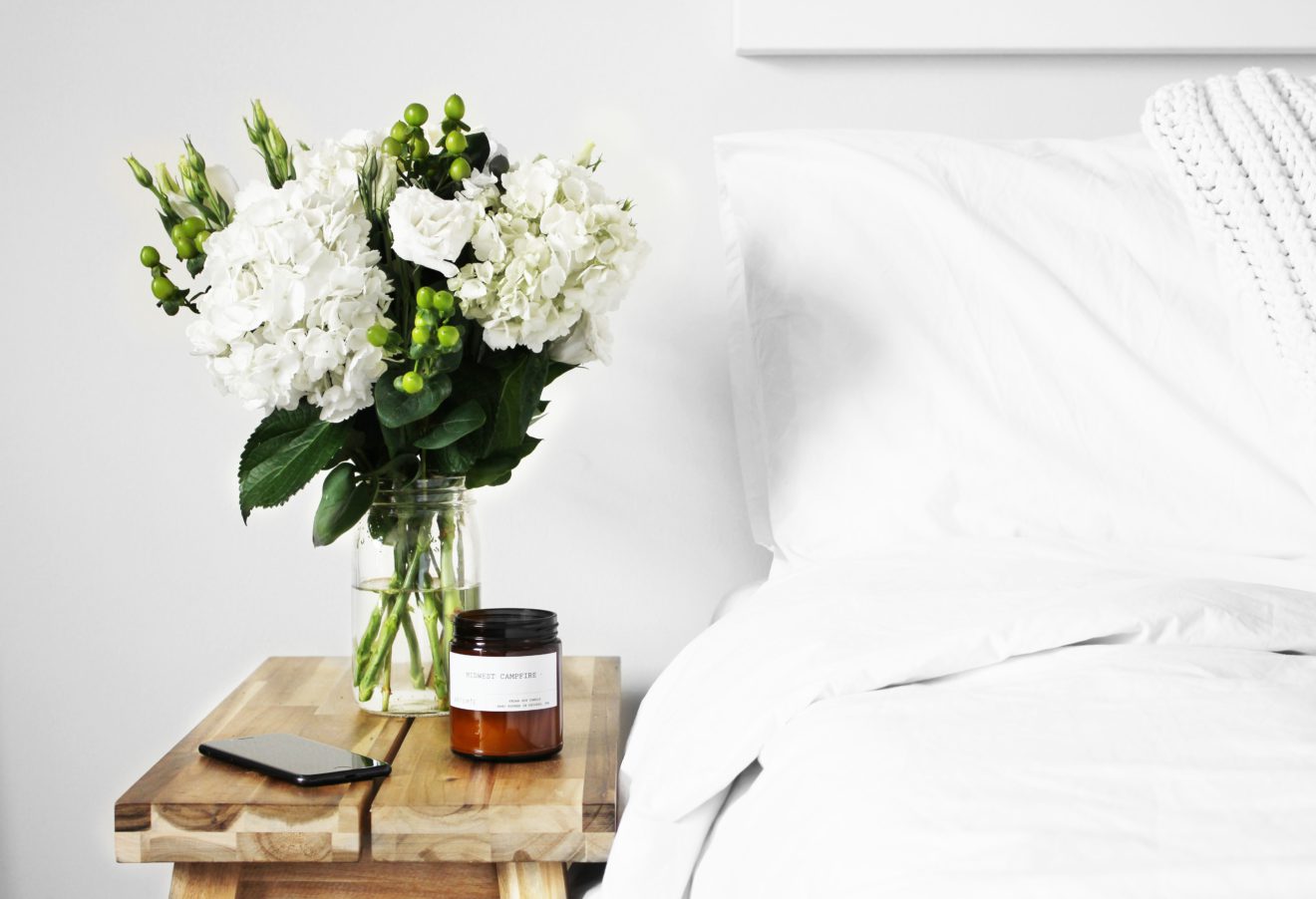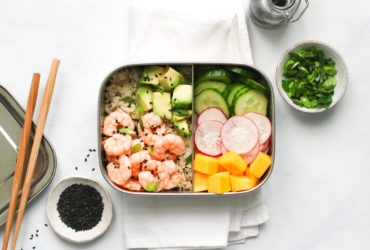
10 Ways To A Better Night’s Sleep
It has been reported that 51.3% of Brits struggle to drift off at night. Sleep deprivation can drastically affect quality of life, and can often be the result of stress, anxiety and even a poor diet.
Here are 10 bedtime rituals to boost the quality of your sleep…
1. Consume a bed time snack rich in tryptophan
Tryptophan is part of a protein molecule, and is the precursor to our sleep hormone melatonin. Consumption of foods rich in tryptophan such as turkey, yoghurt, eggs, nuts and seeds may help to support melatonin production and which regulates the sleep-wake cycle.
By combining at least 30g of carbohydrate to your snack you can boost tryptophan absorption and utilisation. A slice of wholegrain rye bread topped with turkey would make the perfect bedtime snack.
2. Drink a cup of valerian root tea
Valerian is the herb of choice when it comes to sleep disorders and insomnia. Try brewing a cup of valerian root tea one hour before bed. Steep for at least 15 minutes prior to consumption.
3. Mindfulness meditation
There are an abundance of studies to prove the stress reducing and sleep inducing impacts of mindfulness meditation.
Mindfulness is all about being in the present moment, which can help reduce overthinking as well as future or past worries. If you’re mind races before bed, then 10 minutes of mindfulness could be just what you need to provide a sense of calmness.
4. Drink a small glass of tart cherry juice twice daily
Montmorency tart cherries are a natural source of the sleep hormone, melatonin. Research has shown that consumption of tart cherry juice twice daily can significantly increase total sleep time and sleep efficiency.
Although these results are promising, larger trials are necessary to confirm the role of tart cherry juice in relation to improving sleep and preventing insomnia. Nevertheless, this tasty juice can provide a potential alternative to traditional melatonin supplementation in the form of a functional food 1, 2.
5. Avoid blue light
Blocking blue light before bed can transform sleep. Blue light from laptops, phones, iPads and TV’s can trick our brain into thinking that it’s daytime. This can disrupt the brain’s natural sleep-wake cycle leading to a poor night’s sleep.
6. Eat two kiwi fruit a day
Kiwi fruit are rich in our happy neurotransmitter called serotonin. Serotonin is the precursor to our sleep hormone melatonin. One study has shown that eating two kiwi fruit per day, an hour before bed for 1 month can significantly improve total sleep time and sleep quality. The mechanism for their sleep inducing properties is yet to be explained, however it is thought that it could be down to their rich content of folate and serotonin. Whilst this study is certainly interesting, more research is needed before we can make confirmed links – however since kiwi fruit is super healthy, why not give it a try? 3.
7. Invest in essential oils like lavender
What we breathe in can affect how we sleep. Lavender has been shown to decrease heart rate and blood pressure, whilst inducing a more relaxed state. Incorporate lavender oils, candles or pillow sprays in your relaxing bedtime routine.
8. Write a to do list
At least an hour before bed, put together a ‘to do’ list. This can prevent worries or mulling over tasks for the next day whilst trying to sleep.
9. Eat a portion of oily fish each week
A higher intake of DHA omega 3 fatty acids found in oily fish, has been shown to stimulate the release of our sleep hormone melatonin. An Oxford University study showed that 4 months of supplementation of DHA fats helped children to sleep for an hour longer each night 4.
Oily fish includes salmon, mackerel, herring, sardines and anchovies.
10. Have a magnesium bath
Magnesium is a calming mineral and has been dubbed as ‘natures tranquilliser’.
There is some evidence to suggest that supplemental magnesium may help to improve sleep quality in elderly insomniacs who tend to have relatively low magnesium intakes. However, if we’re not deficient in magnesium in the first place, more may not always translate into a better nights sleep.
Magnesium is effectively absorbed trans dermally; making baths a relaxing way to increase our intake
References
1. https://www.ncbi.nlm.nih.gov/pubmed/22038497
2. https://www.ncbi.nlm.nih.gov/pubmed/20438325
3. https://www.ncbi.nlm.nih.gov/pubmed/21669584
4. https://www.ncbi.nlm.nih.gov/pubmed/12163983
Lily is a London Nutritionist who graduated from Newcastle University with a BSc (Hons) degree in Food and Human Nutrition (AfN accredited) where she was awarded with the Sage Faculty for Excellence Scholarship on an annual basis. She then went on to complete a 2 year post graduate Diploma in Nutritional Therapy and is currently working towards her MSc in Nutritional Medicine (AfN accredited) at the University of Surrey. Lily’s extensive knowledge of the science of food and health, enables her to regularly write for The Times, The Telegraph, The Daily Mail, The Independent, Women’s Health and Cosmopolitan.
Her frequent TV appearances include ITV’s This Morning with Holly Willoughby and Phillip Schofield, and ITV’s prime time series Save Money: Lose Weight with Dr Ranj Singh. Lily’s passion is to simplify the science around nutrition, to provide health hacks and smarter eating strategies to empower people to enjoy a healthy and successful lifestyle. Her specialities lie in workplace wellness, implementing nutrition focused wellbeing programmes within corporate organisations across the UK.
Lily also sees individual clients from her clinic in Chelsea and a private medical practice based in Notting Hill.




